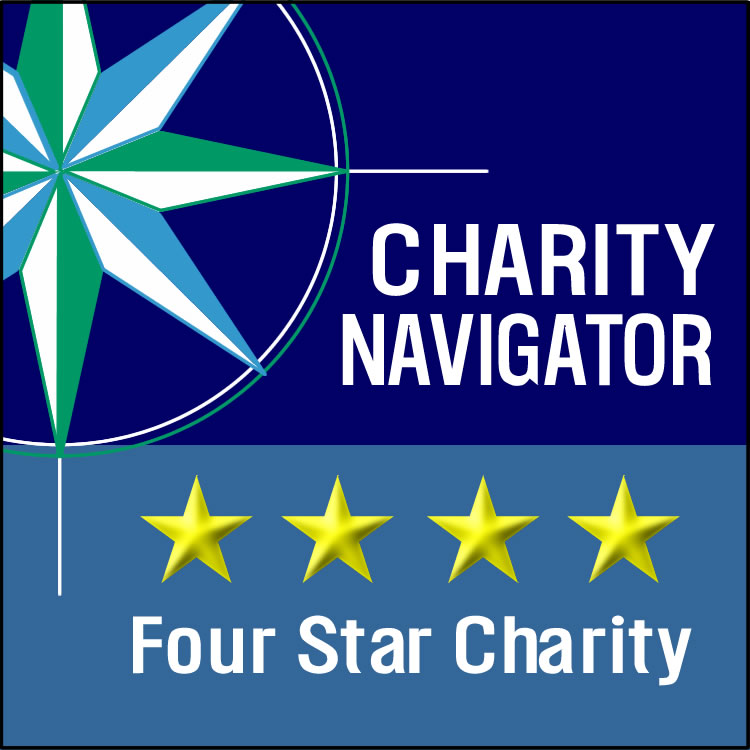 Planned giving options
Planned giving optionsThere are a variety of planned giving options that allow you to attain your own personal financial objectives while making a significant gift to the San Diego Center for the Blind. The best type for you depends on your own individual needs. Please consult with your tax, legal or financial advisor to determine which is best for you.
Some of the various types include:
Bequest Gift
Donors may make charitable gift by naming San Diego Center for the Blind as a beneficiary in their wills. The federal government encourages these gift or bequests, by allowing an unlimited estate tax charitable deduction. In addition, a charitable bequest may place your estate in a lower estate tax bracket.
Living Trust
A living trust is a legal document created by you (the grantor) during your lifetime. Just like a will, a living trust spells out exactly what your desires are with regard to your assets, your dependents, and your heirs. Consult with your tax professional, financial planner and or your attorney for advice.
Life Income Gift
Family obligations and the need to provide for retirement, coupled with the high cost of living, make it difficult for many people to consider substantial charitable gifts now. But there is a way to have the satisfaction of making a meaningful lifetime gift without sacrifice. In fact, you can get current income tax and financial benefits. It is called a life income gift. You irrevocably transfer some assets to San Diego Center For the Blind now, and in return, you (and a survivor, if you wish) receive income for life. As a result, the assets are used to carry out our mission.
By making a life income gift to San Diego Center for the Blind, you will receive the following benefits, in addition to the pleasure of knowing the good work your gift will do.
- A charitable deduction in the year you make the gift for the present value of our right to eventually receive the assets.
- Your effective yield is increased by substantial income tax savings.
- Income can be taxed more favorably in some plans.
- You unburden yourself of investment concerns.
- Your probate and estate administration costs may be reduced.
Examples of Life Income Plans
- Charitable Gift Annuity
- Joint and Survivor Annuities
- Charitable Remainder Trust
- Unitrust
- Annuity
- Pooled Income Fund
Charitable Gift Annuity
The charitable gift annuity enables you to make a gift to support the San Diego Center for the Blind and at the same time improve the quality of life for your family. In exchange for your gift of cash or marketable securities to the San Diego Center for the Blind, we agree to pay you (and a survivor or other beneficiary) a fixed amount annually for your lifetime. The transfer is part gift and part purchase of an annuity. The rate of return is attractive, and the payments are guaranteed for life.
The San Diego Center for the Blind uses the charitable gift annuity rates recommended by the American Council on Gift Annuities, which can range from 6% to 12%. (Please check with your tax advisor and/or financial planner for current applicable rates.) For example, Ms. Anderson, age 75, transfers $10,000 to San Diego Center for the Blind for a gift annuity. She will receive a guaranteed annual income of $820 ($10,000 x 8.2% — the annuity rate for her age).
Charitable Remainder Trust
A trust is a legal agreement that specifies how the assets placed under the trust will be managed. The charitable remainder trust is an attractive method to achieve a variety of goals while providing income for life and knowing that after your lifetime, the property remaining in the trust will be used by San Diego Center For the Blind as you specified.
The benefits of a Charitable Remainder Trust include:
Receive income for life
- Eliminate taxes on capital gains on the sale of appreciated securities
- Receive immediate charitable income tax deduction based on your age
- Remove all or most of the assets donated from your estate, thereby reducing potential estate taxes
- Receive the satisfaction of supporting the San Diego Center for the Blind
Life Insurance Gift
Some of our supporters no longer need their life insurance that was purchased years ago to provide for children or other family members. If that is your situation, please consider donating the policy to San Diego Center For the Blind. You may claim a charitable deduction for approximately the policy's cash surrender value, and the proceeds are completely removed from your estate.
Charitable Lead Trust
Individuals with very large estates can use a charitable lead trust to benefit San Diego Center For the Blind and pass principal to family members with little or no tax penalty. It works like this: You transfer assets to a trust that provides payments to the San Diego Center for the Blind for a term of years. Then, the trust principal goes to your children, grandchildren, or others free of - or at greatly reduced - federal gift and estate tax. (Please note that a generation skipping tax [GST] is imposed on large transfers to grandchildren and others who are more than one generation younger than you.)
Retirement Plan Gift
Many individuals today have large qualified retirement plans such as an IRA, 401(k), or Keogh plan. These assets have been growing tax-free for years. Once the owner begins to receive payments from the qualified plans, the distributions are taxed. The plans are also included in the owner's taxable estate. A retirement plan may be an excellent source of funds for making a gift to the San Diego Center For the Blind.
One way to make a gift of your retirement plan is to create a charitable remainder trust through your will. It works like this: Your IRA assets will be transferred to a charitable remainder trust. There is no tax due because the charitable remainder trust is a tax-exempt entity. The trust will provide life income to the beneficiary (for example, your child) with an eventual gift to the San Diego Center for the Blind. The beneficiary will pay income tax on the distributions from the trust. Your estate will receive an estate tax charitable deduction for the value of the San Diego Center for the Blind’s right to eventually receive the trust assets.
Joint and Survivor Annuities Gift annuities can be arranged to make payments for the lifetimes of two people, such as a husband and wife, brothers and sisters, parents and children or close friends. The rates for two lives are less than rates for one life because the period of payment may be longer. (Again check with your tax advisor and/or financial planner for current applicable rates).
Two-life gift annuities also provide charitable deductions and payments to the recipients that are partly tax-free. For example, Mr. Edwards is 75 and his wife is 70. They transfer $20,000 to the San Diego Center for the Blind for a gift annuity and receive $1,400 annually for life ($20,000 x 7% — the annuity rate for their combined ages). The full guaranteed payments continue for the survivor’s life.
If you wish, you may defer charitable gift annuity. You can make the gift now, and the San Diego Center for the Blind will pay you (and another beneficiary, if you wish) life income starting at any date you specify. This is a great option if you are concerned about retirement income. Also, you receive the income tax deduction in the year you make the gift. The amount you receive each year depends on the amount transferred, your age now, and your age when the payments are to start. For example, Ms. Baker, age 50, transfers $10,000 to the San Diego Center for the Blind for a deferred gift annuity with payments to start at age 65. Her rate of return will be 16.3%, and she will receive $1,630 per year for life ($10,000 x 16.3%).
Note that the charitable deduction is available to donors who ‘itemize’ deductions and, in some cases, may not be wholly deductible in one year. Excess deductions, however, can be carried over and deducted for up to five carryover years. Remember that the charitable gift annuity is an irrevocable gift commitment, but one with excellent tax and financial benefits.
NOTE: We make no claims regarding the accuracy of the above information or the tax consequences stemming from your use of it. Please consult with your own tax, legal, or financial planning advisor.



